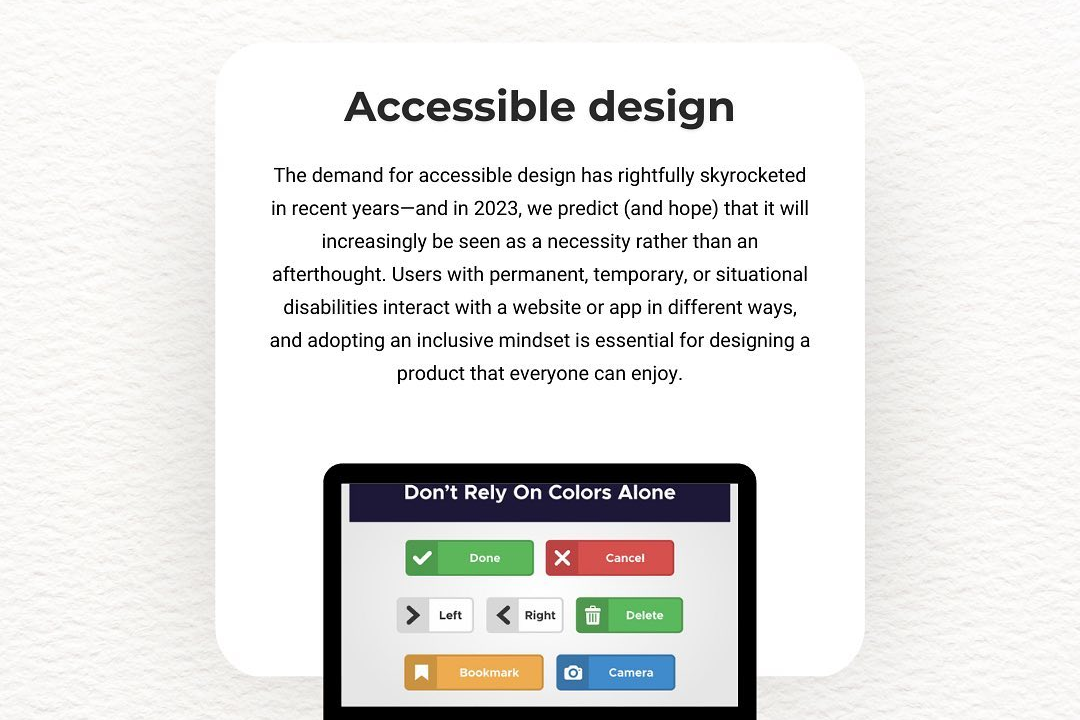Selenium Testing Course
The Selenium Testing Course at JustAcademy is a structured program designed to teach participants ho
Selenium Testing Course
The Selenium Testing Course at JustAcademy is an essential training program for anyone looking to excel in automated web testing. Selenium is one of the most widely used open-source tools for browser automation, enabling testers to perform efficient, reliable, and scalable tests across different browsers and platforms. This course provides comprehensive knowledge of Selenium WebDriver, test scripting, and automation frameworks, equipping learners with the skills needed to streamline testing processes, reduce manual effort, and improve software quality. Enrolling in this course prepares professionals for high-demand roles in the software testing industry and helps organizations accelerate their testing cycles with robust automation solutions.
To Download Our Brochure: https://www.justacademy.co/download-brochure-for-free
Message us for more information: +91 9987184296
The Selenium Testing Course at JustAcademy is an essential training program for anyone looking to excel in automated web testing. Selenium is one of the most widely used open source tools for browser automation, enabling testers to perform efficient, reliable, and scalable tests across different browsers and platforms. This course provides comprehensive knowledge of Selenium WebDriver, test scripting, and automation frameworks, equipping learners with the skills needed to streamline testing processes, reduce manual effort, and improve software quality. Enrolling in this course prepares professionals for high demand roles in the software testing industry and helps organizations accelerate their testing cycles with robust automation solutions.
Course Overview
The Selenium Testing Course by JustAcademy covers browser automation, WebDriver setup, test scripting, and automation frameworks, empowering learners to perform efficient, scalable web tests and advance their QA skills.
Course Description
The Selenium Testing Course by JustAcademy provides comprehensive training on browser automation, WebDriver setup, test scripting, and automation frameworks, enabling learners to perform efficient, scalable web application testing and advance their QA skills through real-time projects.
Key Features
1 - Comprehensive Tool Coverage: Provides hands-on training with a range of industry-standard testing tools, including Selenium, JIRA, LoadRunner, and TestRail.
2) Practical Exercises: Features real-world exercises and case studies to apply tools in various testing scenarios.
3) Interactive Learning: Includes interactive sessions with industry experts for personalized feedback and guidance.
4) Detailed Tutorials: Offers extensive tutorials and documentation on tool functionalities and best practices.
5) Advanced Techniques: Covers both fundamental and advanced techniques for using testing tools effectively.
6) Data Visualization: Integrates tools for visualizing test metrics and results, enhancing data interpretation and decision-making.
7) Tool Integration: Teaches how to integrate testing tools into the software development lifecycle for streamlined workflows.
8) Project-Based Learning: Focuses on project-based learning to build practical skills and create a portfolio of completed tasks.
9) Career Support: Provides resources and support for applying learned skills to real-world job scenarios, including resume building and interview preparation.
10) Up-to-Date Content: Ensures that course materials reflect the latest industry standards and tool updates.
Benefits of taking our course
Functional Tools
1 - Selenium WebDriver: Selenium WebDriver is the core tool for automating web browsers. It allows testers to write scripts in various programming languages such as Java, Python, C#, and more to simulate user interactions like clicking, typing, and navigating through web pages. WebDriver directly communicates with the browser's native support, enabling high precision and reliability in testing web applications. It supports multiple browsers including Chrome, Firefox, Edge, and Safari, making it a versatile choice for cross browser testing. In our training program, students learn how to set up WebDriver, write and run automation scripts, and troubleshoot common issues, equipping them with practical skills to develop robust automation frameworks.
2) TestNG/JUnit Frameworks: These are testing frameworks used alongside Selenium to structure and manage test cases effectively. They provide features like grouping tests, parallel execution, and detailed reporting, which are essential for maintaining large test suites. Students are introduced to creating test cases, setting up test configurations, and generating reports to analyze testing progress and failures. Mastery of these frameworks helps in writing scalable, maintainable, and reusable test scripts, fostering best practices in automation testing.
3) Selenium IDE: Selenium IDE is a browser extension that offers record and playback capabilities, making it ideal for beginners. It allows rapid creation of test scripts without programming knowledge by recording user actions and generating test scripts automatically. During the course, students explore how to use Selenium IDE to quickly prototype tests and understand the basics of test automation concepts. It serves as an entry point into automation before transitioning to WebDriver based scripting for advanced testing needs.
4) Page Object Model (POM): POM is an automation testing design pattern used to enhance test script maintainability and readability. It involves creating dedicated classes for each webpage that encapsulate web elements and actions, reducing code duplication and simplifying updates when UI changes occur. Our training emphasizes implementing POM in Selenium projects, ensuring students write modular and scalable tests that are easy to manage in complex testing environments.
5) Selenium Grid: Selenium Grid enables parallel test execution across multiple machines and browsers, drastically reducing testing time for large test suites. It supports distributed testing, allowing simulation of real world user scenarios on different browsers and operating systems simultaneously. The program trains students to set up and configure Selenium Grid, deploy tests on various nodes, and optimize execution strategies to achieve efficient test cycles, vital for continuous integration pipelines.
6) Browser Driver Vendors (ChromeDriver, GeckoDriver, EdgeDriver): These drivers facilitate communication between Selenium WebDriver and respective browsers. Each driver is tailored for a specific browser and acts as a bridge to execute automation commands. Students learn how to download, configure, and troubleshoot these drivers, ensuring compatibility and smooth execution of tests across multiple browser environments.
7) Jenkins for CI/CD Integration: Jenkins is a continuous integration tool that automates the execution of Selenium test scripts as part of the software delivery pipeline. It helps in scheduling, running, and monitoring automated tests automatically after code commits or at specified intervals. In our training, students gain hands on experience integrating Selenium tests with Jenkins, enabling them to implement CI/CD workflows, which are critical for rapid and reliable software deployment.
8) Allure and Extent Reports: These are reporting tools that provide detailed and visually appealing test execution reports. They help in tracking test results, debugging failed cases, and sharing insights with team members. The course covers generating and customizing reports, enhancing the ability of students to communicate testing outcomes effectively and improve overall test management.
9) Maven/Gradle Build Tools: Maven and Gradle are dependency management and build automation tools used to organize, compile, and run automation projects seamlessly. They facilitate managing libraries, plugins, and project configurations, ensuring consistency across testing environments. Training includes setting up projects with these tools, writing build scripts, and integrating them with test suites to enable smooth automation workflows.
10) Version Control Systems (Git, GitHub): These tools allow students to manage their test scripts and project code efficiently. They enable tracking changes, collaborating with team members, and maintaining code versions systematically. The course teaches git commands, repository management, branching strategies, and best practices for version control, empowering students to work in professional development environments.
11 - Mobile Automation Tools (Appium): For testing mobile applications, Appium is introduced as an extension of Selenium that supports automation on Android and iOS devices. It interacts with mobile app UI elements similarly to web elements and enables cross platform testing. Students learn to set up Appium, write mobile test scripts, and handle device specific challenges, broadening their automation expertise beyond web testing.
12) UI Element Locators (XPath, CSS Selectors, ID, Name): Effective element location is crucial for reliable test scripts. The course covers various strategies to identify web elements accurately, including XPath expressions, CSS Selectors, IDs, names, and class names. Students learn best practices for selecting stable locators, optimizing test speed, and ensuring resilience against UI changes.
13) Docker for Containerization: Docker allows packaging test environments into containers, ensuring consistency across different machines and test setups. It simplifies setting up Selenium Grid nodes, browser environments, and test runners, reducing configuration conflicts. Training includes creating Docker images, managing containers, and orchestrating tests in containerized environments, facilitating scalable and portable automation solutions.
14) Logging and Debugging Tools: Tools like log4j, Allure reports, and browser developer tools are used to capture detailed logs, screenshots, and debug information during test execution. The course emphasizes implementing effective logging strategies, analyzing logs to identify issues, and troubleshooting failed tests swiftly, which is vital for maintaining reliable automation scripts.
15) Performance Testing Tools (JMeter, LoadRunner): While primarily focused on functional automation, the course introduces performance testing concepts using tools like JMeter. Students learn how to integrate performance scenarios with automation scripts to evaluate system responsiveness under load, providing a comprehensive testing skill set adaptable for various testing needs.
16) AI powered Testing Tools (Optional/ emerging): The curriculum explores some AI driven testing tools that automate test creation, maintenance, and failure prediction. These innovative tools can enhance testing efficiency and accuracy. Students are introduced to basic concepts of integrating AI into testing workflows, preparing them for future industry trends.
17) Security Testing Tools (OWASP ZAP, Burp Suite): Basic security assessment tools are sometimes discussed for understanding vulnerabilities in web applications. Students gain insight into integrating security checks with automation workflows, promoting a holistic approach to web application testing.
18) Code Quality and Static Analysis Tools: Tools like SonarQube are introduced to assess code quality, detect bugs, and ensure adherence to coding standards in test scripts. Incorporating these tools ensures maintainable and high quality automation codebases, which are essential for long term project success.
19) Custom Framework Components (Reusable Libraries, Utility Scripts): The course teaches how to create reusable libraries, data driven components, and utility scripts that streamline automation efforts. These components enhance productivity, reduce redundancy, and improve consistency across automation projects, enabling students to build their customized test frameworks.
20) Cloud based Testing Platforms (Sauce Labs, BrowserStack): To efficiently perform cross browser testing on a wide array of devices and OS configurations, students learn how to leverage cloud testing services. Integration with these platforms allows parallel execution, extensive device coverage, and simplified test management, vital for scalable testing solutions.
21 - Behavior Driven Development (BDD) with Cucumber: BDD encourages collaboration between developers, testers, and business stakeholders by writing tests in natural language. Using tools like Cucumber, students learn to create feature files, step definitions, and integrate them with Selenium for automated testing. This approach improves communication, clarity, and maintainability of test cases, aligning testing efforts with business requirements.
22) Data Driven Testing: This technique involves executing the same test multiple times with different sets of data to validate various input scenarios. Students learn to parameterize test scripts using external data sources like Excel sheets, CSV files, or databases, increasing test coverage and efficiency without duplicating code.
23) Keyword Driven Testing Frameworks: In this approach, test automation is driven by a set of predefined keywords representing actions. Students are guided on designing keyword libraries, creating test scripts using keywords, and managing test data. It enhances test reusability and allows non technical team members to contribute to test case creation.
24) Test Automation Strategy & Planning: Beyond technical skills, the course emphasizes understanding how to formulate an effective automation strategy, including selecting suitable tools, identifying test cases to automate, maintaining test scripts, and integrating testing into agile workflows for maximum ROI.
25) Test Data Management & Generation: Proper handling of test data is crucial for robust testing. Students learn techniques for creating, managing, and anonymizing test data, as well as automating data generation for large scale or complex testing scenarios to ensure comprehensive test coverage.
26) Handling Dynamic Web Elements: Modern web applications often feature dynamic content that challenges element identification. The training covers strategies like explicit waits, dynamic locators, and DOM analysis to reliably interact with transient or asynchronously loaded elements.
27) Cross Browser & Cross Platform Testing: To ensure application compatibility, students explore techniques for running tests across multiple browsers, devices, and operating systems, leveraging tools like Selenium Grid, cloud platforms, and mobile emulators.
28) Test Case Design & Optimization: The curriculum emphasizes designing efficient, focused test cases that maximize coverage while minimizing redundancy. Students learn to analyze application workflows and prioritize critical paths for automation.
29) Test Maintenance & Refactoring: As applications evolve, so do test scripts. The course trains students on best practices for maintaining and refactoring test automation code, ensuring it remains reliable, readable, and adaptable to UI changes.
30) Automation Framework Types (Linear, Modular, Data Driven, Hybrid): An overview of various framework architectures helps students understand which design suits different project needs. They gain skills to build, customize, and evaluate these frameworks effectively.
31 - Handling Popups, Alerts & Frames: Modern web pages often include modals, popups, or iframes. The course covers techniques to switch contexts, handle alerts, and interact with embedded frames within automation scripts.
32) Screenshot & Video Capture: Capturing screenshots and videos during test execution aids in debugging and reporting. Students learn to implement automated capture techniques for better test analysis and documentation.
33) Test Environment Configuration & Management: Setting up and managing consistent testing environments is vital. The course addresses configuring browsers, drivers, dependencies, and environments with automation tools for uniform testing conditions.
34) Test Result Analysis & Metrics: Beyond generating reports, students learn to analyze test results, calculate metrics like pass rate and defect density, and derive insights to improve software quality.
35) Automated Email & Notification Integration: Integrating test reports with email or communication platforms to notify stakeholders of build statuses or test failures ensures prompt feedback loops and swift issue resolution.
36) Advanced Wait Strategies (Fluent Waits, Implicit/Explicit Waits): These techniques improve script stability when dealing with dynamic content loading times, reducing flaky test results.
37) Accessibility Testing Integration: Incorporating accessibility testing tools and practices to verify compliance with standards (like WCAG) enhances web application inclusivity.
38) Certificate & Authentication Handling: Managing secure login processes, multi factor authentication, and handling certificates within automation scripts ensures comprehensive testing of secure applications.
39) API & Backend Testing Integration: Automating API tests in conjunction with UI tests provides a comprehensive testing approach, verifying backend functionality alongside frontend performance.
40) Mobile Responsive Testing: Ensuring that applications are responsive across devices and screen sizes, students learn techniques to simulate different device viewports and test layouts.
41 - Localization & Internationalization Testing: Verifying application behavior across different languages and regions, incorporating locale specific data handling and UI adjustments.
42) Test Automation Documentation & Reporting Standards: Emphasizing the importance of maintaining clear documentation, versioning, and adherence to reporting standards to enhance collaboration.
43) Security & Data Privacy Compliance Testing: Incorporating checks for data privacy regulations (like GDPR) and secure data handling within tests to ensure compliance.
44) Robotic Process Automation (RPA) Integration: Exposing students to RPA tools and concepts that extend automation beyond testing, automating business processes.
45) Virtualization & Cloud Resource Management: Efficiently managing cloud and virtualized environments for large scale automation testing through scripting and orchestration tools.
Browse our course links : https://www.justacademy.co/all-courses
To Join our FREE DEMO Session:
This information is sourced from JustAcademy
Contact Info:
Roshan Chaturvedi
Message us on Whatsapp: +91 9987184296
Email id: info@justacademy.co
Basic Loops and If Else Programs in PHP
Appium Selenium Mobile Automation Testing From Scratch Download












